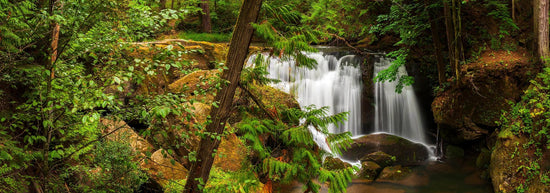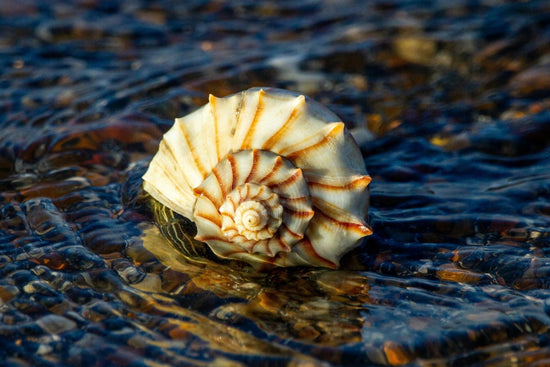Man-made climate change isn’t just devastating our environment—it’s impacting our mental health, too. Eco-anxiety is emerging across the world from persons of all ages as the consequences of global warming continue to intensify.
Hotter temperatures, unpredictable weather, intense storms, loss of biodiversity, poverty, and displacement are just a few ramifications of climate change we’ve already begun to experience. Especially when we’re seeing a startling lack of action from our international leaders to address these major problems, distress about our future on this planet can quickly snowball into a paralyzing state of climate doom.
This makes eco-anxiety a pressing topic for discussion. We believe that tending to our mental health is a critical pillar of the environmental movement—as mental health nonprofit Fountain House writes, “if the well-being of activists isn’t prioritized, the movement itself has a smaller chance of thriving.”
In honor of Mental Health Awareness Month (May), we want to highlight the rapidly expanding realm of eco-anxiety, who it impacts, why it’s important to pay attention to, and what approach is needed to alleviate some of this stress. We will also share a few strategies for managing these emotions while continuing the critical work of environmental advocacy.
Please note: We are not mental health professionals and this article should not substitute for professional advice. Please see a licensed mental health counselor and/or reach out to your loved ones if you’re in need of climate-conscious support.
Header image by Milan Popovic.
What Is Eco-Anxiety?

Photo by Markus Spiske.
Climate anxiety or eco-anxiety is a lot more than worrying about the effects of climate change. According to the American Psychological Association, eco-anxiety is “a chronic fear of environmental doom” that arises from observing, experiencing, or anticipating the consequences of rapid global warming. This can create persistent feelings of stress, grief, panic, or existential dread.
“[Eco-anxiety is] the generalized sense that the ecological foundations of existence are in the process of collapse.”
—Glenn Albrecht, environmentalist, philosopher, & author
While eco-anxiety can compound with other mental health conditions and trigger stress responses in the body, an important distinction to make here is that eco-anxiety is not a mental illness. As London’s National History Museum writes, “Eco-anxiety is rational. It is our 'internal alarm bells' telling us something is wrong.”
This becomes especially true when we consider human relationships with land across time. Modern Western societies have (only recently) normalized a cognitive separation between humans and the land we live on, yet connection with nature continues to nourish our nature-made bodies and psychology.
Moreover, “many Indigenous people understand that caring for the land and environment is a sacred responsibility,” writes Chevaun Toulouse, an Anishinaabe student of conservation biology and Indigenous environmental science. “There is an understanding of relation to the land, where the land, humans, and non-human life are all interdependent in a cyclical way.”
For many of us, participating in this type of relationship with the land is integral to our identities and our ways of life. With such relationships under existential threat, feelings of anxiety and grief are natural, healthy responses.
All this being said, eco-anxiety remains a relatively new mental health topic that we’re still learning a lot about, especially when it comes to who it impacts and how to treat it.
Who Does Eco-Anxiety Impact?

Photo by Li-An Lim.
It doesn’t discriminate: Anyone who pays attention to and cares about our global environment is susceptible to eco-anxiety. However, it may affect ecologically or economically vulnerable communities more severely than others. This includes folks such as Indigenous communities; low-income communities; those working in agriculture, fishing, or tourism; people with disabilities; displaced people; immigrants; elderly people; and our global youth.
Young people in particular are experiencing “sky-rocketing eco-anxiety,” writes London’s Natural History Museum, “as they see the window to fix the planetary emergency closing, but often feel powerless to enact meaningful change.”
Youth nonprofit Force of Nature finds that over 70% of young people feel “hopeless” in the face of the climate crisis. From young adults entering the workforce to children as young as four or five, our planet’s youth is over-burdened with an expectation to “fix” the environmental mistakes of older generations, all with a feeling of extreme uncertainty that there is a livable future to work toward at all.
Psychotherapist Caroline Hickman has done extensive research on climate anxiety in young people over the last several years. A study she worked on in 2021 surveyed 10,000 young people (ages 16–25) from ten different countries. Below are a few of its findings.
-
84% of respondents were at least moderately worried about climate change.
-
59% felt very or extremely worried.
-
More than 45% said their feelings about climate change affect their daily life, reporting frequent negative thoughts.
-
75% said the future is frightening.
-
83% said they thought people have failed to take care of the planet.
The study also found that eco-anxiety in young people correlates strongly with “perceived inadequate government response” and feelings of betrayal. In a paper published earlier this year, Hickman writes that children “are left confused about who to trust…there seems to be no priority given to their needs for a safe future.”
“...the climate emergency is not going to recede or be fixed in the near future. It follows, therefore, that eco-anxiety will also continue to increase in response, and any attempt to fix it or remove it in children and young people risks invalidating their fears rather than supporting them. We do of course also need to respond to the distress that is being felt and support children and young people to navigate their distress whilst validating their emotionally healthy and congruent response.”
—Caroline Hickman, psychotherapist & researcher
Interestingly, this study also illustrates how eco-anxiety manifests differently across the world. For example, 92% of respondents in the Philippines said the future is frightening, as opposed to just 56% in Finland. This reminds us that climate change is not a one-size-fits-all experience, and that our environmental movement is strengthened and enriched when we welcome diverse perspectives into the mix. Effective solutions for climate change and eco-anxiety alike are born from intersectional ideas.
Tips for Managing Eco-Anxiety

Photo by ricardo frantz.
Managing eco-anxiety requires collaboration and community. Climate change is not an individual problem—nor can it be treated with individual solutions. Building community around our collective experience of climate anxiety, grief, and dread is an integral part of healing our relationship with the Earth and garnering resilience in the environmental movement.
This is the very topic of climate justice activist Tori Tsui’s debut book, It’s Not Just You: How to Navigate Eco-Anxiety and the Climate Crisis (which can be pre-ordered here). In an interview with Gen Dread, she says her book is “an invitation to recognize that we can have our individuality as organizers, campaigners, writers, thinkers, and citizens of the world. But that’s not necessarily to be conflated with individualism, which to me is part of the reason why we’re in this crisis in the first place.”
Indeed, the climate crisis requires us to consider that we on this planet, from our actions to our ecosystems, rely on global interdependence. That means we need to look beyond ourselves in order to transform our collective relationship with the Earth. When we stop hyper-individualizing the climate crisis and take in this bigger picture, it gives us permission to not feel alone in finding solutions.
Addressing climate change effectively will take long-term changes at a systemic level (which we explore at length here). Meanwhile, taking care of our mental health is a day-to-day commitment. Below are a few tips for doing so.
* * *
Have any tips, advice, or resources for managing eco-anxiety? Feel free to share your ideas and experiences in the comments below.





